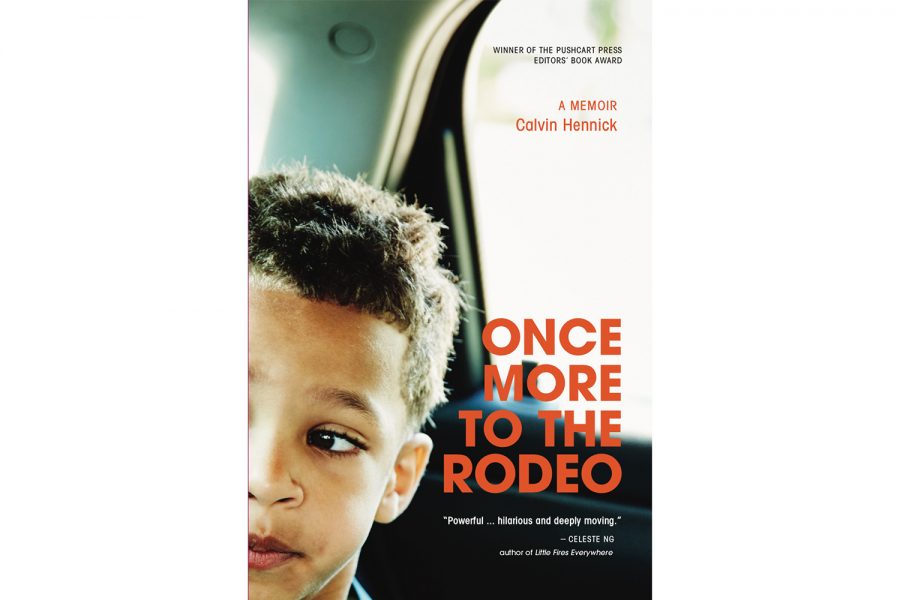Iowa native and UI alum releases award-winning memoir, powerfully depicting a father-son relationship
Calvin Hennick, an Iowa native and UI alum, released his début memoir recounting an intrepid ten-day father-son adventure in the face of familial confrontation, racism of the past and present, and the desire to raise those who come after as better.
December 9, 2019
Calvin Hennick’s debut memoir Once More to the Rodeo, which was released today, grapples the audience on an intrepid father-son bond from Boston all the way to Iowa.
And I repeat, it is not even really about the gosh darn rodeo. Well, at least for the most part.
Recently winning the Pushcart Editors’ Book Award, Hennick’s tale is a ten-day narrative, tracking the experiences, wishes, whispers, rants, fights, and touching moments of tenderness between himself and his son Nile — a five- year old at the time of the trip. The end goal for Hennick is showing Nile a piece of his adolescence, situated far from his new Boston reality: an annual rodeo held in Hennick’s hometown of Maxwell, Iowa.
As a born and raised Midwesterner, I am no stranger to the idea of a countryside family road trip; and it is this particular idea in Hennick’s story that offers a playful and tedious sense of adventure all at once.
Along this adventure, Hennick’s story crosses a number of issues, all circling around each other in a planetary way. Facing the darkness in his personal relationship with his father, conversely desiring to be all that he can and more for his children, worrying of raising a biracial son in a modern America — Hennick’s shifting prose still remains rooted. Particularly, it focuses on heavily pertinent topics to our modern world, revolving around identity.
Searching for answers to his own relationship with his father had me reflecting about my family, my relationship with my own father, wondering about how these figures in my life have shaped my own upbringing. Hennick’s introspection opens up the gates for readers.
The inner world that Hennick crafts is, however, not the only wonderful thing about his account by far. As not only a born and raised Midwesterner, but a born and raised Iowan, the spirit with which Hennick characterizes the state resonates a deep and inherent sense of being.
Related: Flooded with humor: UI students share comedic personal tales
The farm fields, the vastness of the sky, the small towns, even the foreignness to some of the agriculture is so prevalent. The culture of the Midwestern land breathes and animates itself in the imagination through Hennick’s words.
This cultural idiosyncrasy with which Hennick paints the Midwest also pops up in his characterizations of most anywhere they travel along the way –– the rush hour of Boston, or the busy city or the aching tourism of Niagara Falls. The diversity in external locations helps guide this internal monologue of Hennick’s in an interesting arc.
The monologue is in no way streamlined, giving rise to a few shifts in narration throughout the story that are sudden and somewhat unexplainable. These shifts showed me moments where I did not particularly like Hennick as a narrator, but they communicated a deeper sense of anxiety and imperfection that I could still connect to.
Even in these moments when the book caused me to break away, it forced me to dive in — into the book and into myself out of a newfound curiosity.
The initial spark of the journey finds no contrived climax, but rather remains full of moments in a story that begins, but in no way ends, on this trip.
“We’ll be better together, Daddy,” Nile says to finish the book.
In those five-year-old’s words, I trusted hope. I trusted optimism. I trusted if two people really love each other, they can — if they choose — be better together, and that makes a beautiful read.














